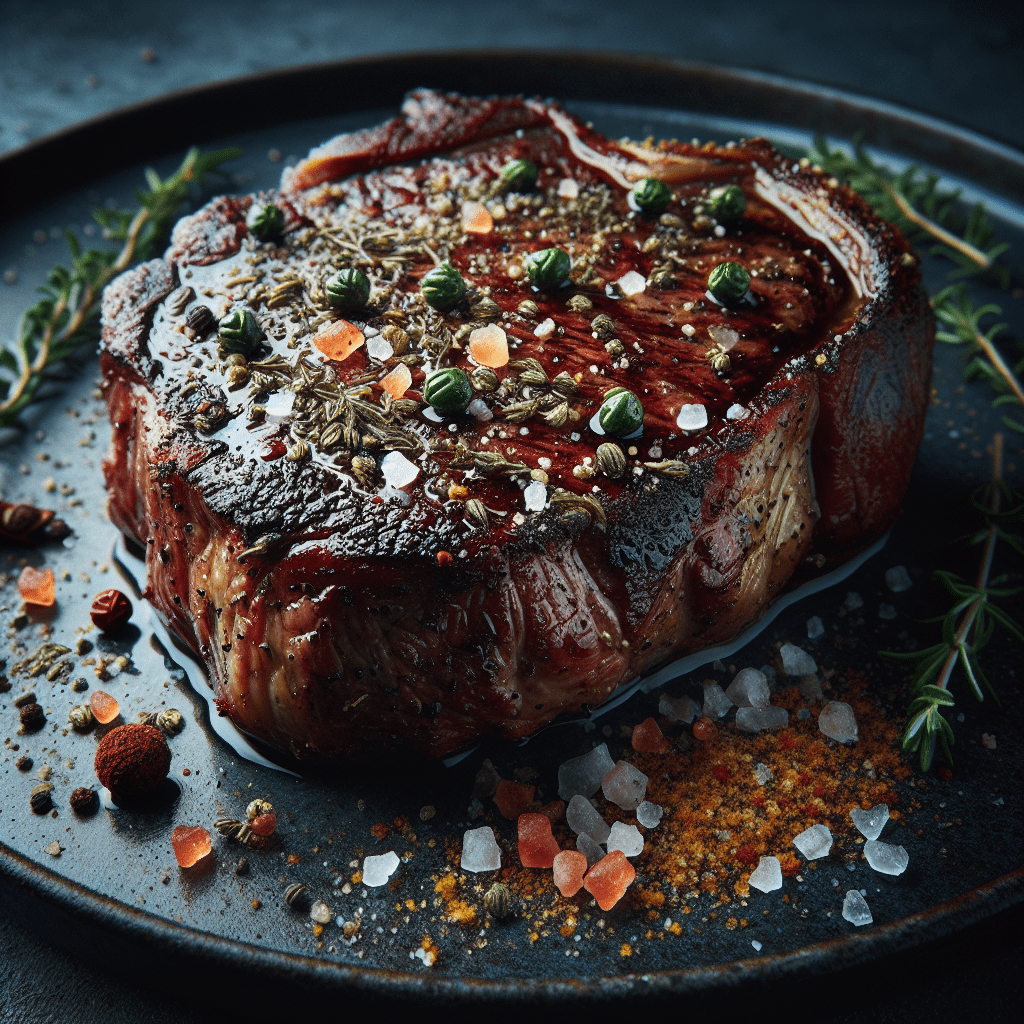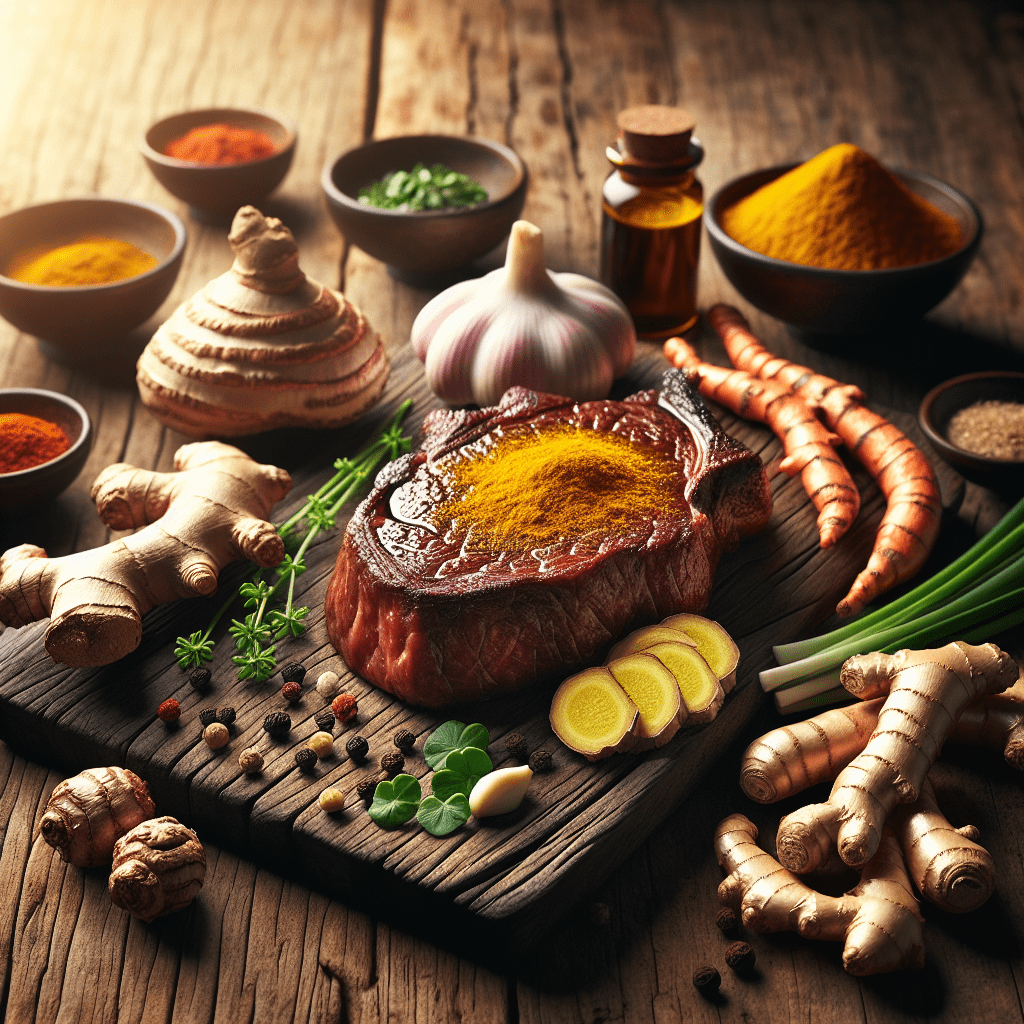When embarking on a carnivore diet, one of the most common questions that comes up is about seasoning: “Can I still enjoy flavorful food?” The good news is that yes, you absolutely can have seasoning on a carnivore diet! While this eating approach focuses primarily on animal products, it doesn’t mean you’re destined for bland, unsatisfying meals.
For anyone transitioning to a meat-based diet, the concern about flavor is completely valid. After all, food isn’t just fuel—it’s one of life’s great pleasures. Even when we choose restrictive diets for health reasons, the enjoyment of our meals plays a crucial role in sustainability. Think about it: how likely are you to stick with any eating plan if every bite feels like a chore?
This is where the art of seasoning becomes essential. Even within the boundaries of a carnivore diet, there’s room for culinary creativity that can transform simple animal proteins into truly delicious meals. Seasoning doesn’t just make food taste better—it makes your dietary journey more enjoyable and sustainable over the long term.
Spices and Herbs Compatible with the Carnivore Diet
Seasoning is the bridge between mere sustenance and culinary delight, even on the most restrictive of diets.
When it comes to the carnivore diet, not all seasonings are created equal. The purest approach focuses on salt as the primary flavor enhancer, but many carnivore enthusiasts find that including certain spices and herbs doesn’t interfere with their goals.
The most widely accepted carnivore-friendly seasonings include:
- Salt (especially mineral-rich options like Himalayan pink salt or Redmond real salt)
- Black pepper
- Garlic powder
- Onion powder
- Dried herbs like rosemary, thyme, and sage
- Smoked paprika
- Cumin
- Turmeric
Many carnivore dieters stick to the “if it comes from plants but contains minimal carbs and anti-nutrients, it’s probably fine in small amounts” rule. The key is choosing pure spices without fillers, sugars, or other additives that might compromise your dietary goals.
One carnivore enthusiast shared, “I was terrified my food would become unbearably boring, but discovering which spices work with this diet was a game-changer. A simple steak with salt, pepper, and garlic powder becomes something I genuinely look forward to every time.”
The Art of Balancing Flavors
Even with a limited spice palette, understanding how to balance flavors can elevate your carnivore meals from acceptable to exceptional. This balance typically involves three key elements:
- Salt: Beyond just making food taste “salty,” proper salting enhances the natural flavors in meat.
- Heat/Spice: Elements like black pepper or a touch of cayenne can add dimension.
- Acidity: While traditional acidic ingredients like lemon might be off-limits, some carnivore dieters incorporate a small amount of apple cider vinegar or use natural meat broths that provide a hint of acidity.
The magic happens when you find your personal perfect balance. For example, a perfectly seasoned ribeye might include a generous coating of sea salt applied 40 minutes before cooking, a fresh crack of black pepper, and perhaps a light dusting of garlic powder. This simple combination creates a depth of flavor that keeps meals interesting day after day.
Remember that different cuts of meat benefit from different seasoning approaches. Fattier cuts like ribeye might need just salt to shine, while leaner cuts like sirloin can benefit from more complex seasoning blends to enhance their milder flavors.
Eastern Philosophy: Constitutional Types and Spice Selection
One fascinating approach to personalizing your carnivore diet seasoning comes from Eastern healing philosophies, which have long recognized that different individuals respond uniquely to various foods and spices. According to these ancient wisdom traditions, understanding your constitutional type can guide you toward the most beneficial choices for your body.
In Eastern medicine, particularly in traditions like Ayurveda and Traditional Chinese Medicine, individuals are classified into different constitutional types based on their innate physical and mental characteristics. These systems suggest that certain spices can either balance or aggravate your particular constitution.
For instance, someone with a naturally “hot” constitution might benefit from cooling spices like coriander, while those with a “cold” constitution might thrive with warming spices like black pepper. This personalized approach aligns perfectly with the growing understanding that dietary needs vary significantly between individuals.
At HerbalsZen, we recognize the value of this personalized approach. Our EASTCHI AI system analyzes individual constitutional types through the Five Element Theory, helping people understand which seasonings might best support their unique bodily needs while enhancing flavor.
Even within the carnivore framework, these principles can be applied. A person with a “fiery” constitution might focus on milder seasonings like a touch of thyme or rosemary, while someone with a more “sluggish” system might benefit from the warmth of black pepper or a hint of cayenne to stimulate digestion.
Creative Seasoning Blends for Carnivore Enthusiasts
Creativity is the secret ingredient that turns ordinary carnivore meals into extraordinary culinary experiences.
Who says carnivore meals need to be monotonous? With a little creativity, you can create signature seasoning blends that transform ordinary meat into extraordinary culinary experiences—all while staying true to your dietary principles.
Here are some carnivore-friendly seasoning blends to try:
Basic Steak Rub
- 2 parts coarse sea salt
- 1 part freshly ground black pepper
- ½ part garlic powder
Smoky Meat Enhancer
- 1 part salt
- ½ part black pepper
- 1 part smoked paprika
- ¼ part onion powder
Herb-Forward Blend
- 1 part salt
- ½ part dried rosemary
- ½ part dried thyme
- ¼ part dried sage
- ¼ part black pepper
For those looking to add complexity without compromising their carnivore principles, consider experimenting with smoking techniques, using bone broths as cooking liquids, or even incorporating meat-derived flavor enhancers like crispy bacon bits or rendered animal fats infused with herbs.
One creative approach gaining popularity among carnivore dieters is “meat on meat” seasoning—using dehydrated organ meats ground into powders as flavorful, nutrient-dense seasonings. Liver powder, for instance, adds a rich umami quality to ground beef dishes while boosting nutritional content.
Health Benefits Beyond Flavor
Nature’s pharmacy meets culinary artistry when you choose the right seasonings for your carnivore journey.
The beauty of many carnivore-friendly seasonings is that they don’t just enhance taste—they also offer potential health benefits that complement your dietary goals.
Many common spices contain powerful bioactive compounds with documented health-promoting properties:
- Turmeric contains curcumin, known for its potent anti-inflammatory effects
- Black pepper contains piperine, which can enhance the absorption of other beneficial compounds
- Garlic has antimicrobial properties and may support heart health
- Rosemary contains antioxidants that may help reduce oxidative stress
According to a carnivore diet coach, “The small amounts of these spices used for seasoning often provide beneficial compounds without introducing enough plant material to trigger sensitivity issues in most people.”
This highlights an important perspective: while the carnivore diet eliminates most plant foods, the judicious use of certain plant-derived seasonings might actually provide health benefits that outweigh concerns for many individuals. As with all aspects of nutrition, personal response is key—some may thrive with a bit of spice variety, while others might prefer to keep it minimal.
Personalizing Your Seasoning Journey
The beautiful thing about seasoning on a carnivore diet is that it’s entirely personal. Your optimal approach depends on your specific goals, sensitivities, and preferences. Some people on a strict carnivore protocol for serious autoimmune conditions might choose to eliminate all plant-derived seasonings, while others following the diet for general health might include a wider variety of spices.
Start by asking yourself: What are my goals with this diet? Am I addressing specific health concerns that might be sensitive to certain compounds in spices? Or am I primarily focused on metabolic health, weight management, or general wellness?
From there, consider implementing a methodical approach:
- Begin with just salt for 2-4 weeks to establish a baseline
- Introduce one new seasoning at a time, noting any changes in how you feel
- Keep a simple journal tracking which seasonings enhance your enjoyment without compromising your goals
- Build your personal “approved” seasoning list based on your findings
One carnivore dieter shared, “I discovered that while most herbs and spices work fine for me, paprika consistently causes joint pain to flare up. Without systematically testing each seasoning, I might never have identified this trigger.”
Educational Resources and Community Support
As interest in the carnivore diet grows, so does the availability of resources specifically focused on making this approach enjoyable and sustainable. Online communities offer valuable insights into which seasonings work best for various carnivore goals.
Many experienced carnivore dieters emphasize that context matters—using spices to enhance the flavors of nutrient-dense animal foods is very different from using them to make processed foods more palatable. The former supports your dietary goals; the latter might undermine them. As Eastern medicine approaches to seasoning recognize, quality and intention matter tremendously.
Several companies now offer specialized seasoning blends specifically formulated for carnivore dieters, with transparent ingredients and no fillers, sugars, or questionable additives. These can be helpful starting points for those new to this way of eating.
Resources like carnivore cookbooks, dedicated YouTube channels, and social media groups provide continuous inspiration for keeping meals interesting within the framework. They demonstrate that even with a limited ingredient list, the possibilities for flavor variation are nearly endless.
For those interested in the Eastern philosophical approach to constitutional typing and personalized spice selection, platforms like HerbalsZen’s EASTCHI AI offer guidance on how to align your seasoning choices with your unique bodily needs, viewing food as medicine in the Eastern tradition.
Mastering the Art of Carnivore Seasoning
The art of seasoning transforms carnivore eating from a diet into a lifestyle—one delicious meal at a time.
As we conclude our exploration of seasoning on the carnivore diet, remember that mastering this aspect of your meat-based journey can make the difference between merely surviving on this diet and truly thriving.
The question “Can you have seasoning on carnivore diet?” has a nuanced answer: Yes, you can—and finding your perfect approach to seasoning might be the key to long-term success. While the strictest interpretation of the diet might limit seasonings to salt alone, many practitioners find that including carefully selected spices enhances both enjoyment and sustainability without compromising their health goals.
Through mindful experimentation, you’ll discover which seasonings support your unique body while making your meals something to look forward to. This personalized approach aligns perfectly with Eastern healing philosophies that have long recognized individual variation in dietary needs—a principle that modern nutrition science is increasingly confirming.
Whether you’re a carnivore diet veteran or just beginning to explore this way of eating, remember that your relationship with food should bring joy alongside nourishment. With the right seasoning strategy, your carnivore meals can be both healing and delicious—a truly sustainable approach to this unique dietary path.
The spice magic is in your hands—use it wisely to transform your carnivore journey from a restrictive diet into a satisfying lifestyle filled with flavor and vitality.



